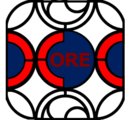>
>
A 401(k) plan is a tax-advantaged, defined-contribution retirement account offered by many employers to their employees. It is named after a section of the U.S. Internal Revenue Code. Workers can make contributions to their 401(k) accounts through automatic payroll withholding, and their employers can match some or all of those contributions.
457B
Rollover IRA
IRA
401K
403B
>
A 403(b) plan is a retirement account for certain employees of public schools and tax-exempt organizations. Participants include teachers, school administrators, professors, government employees, nurses, doctors, and librarians.
Generally speaking, 457 plans are non-qualified, tax-advantaged, deferred compensation retirement plans offered by state governments, local governments, and some nonprofit employers. Eligible participants are able to make salary deferral contributions, depositing pre-tax money that is allowed to compound without being taxed until it is withdrawn.
A rollover Individual Retirement Account (IRA) is an account that allows for the transfer of assets from an old employer-sponsored retirement account to a traditional IRA. The purpose of a rollover IRA is to maintain the tax-deferred status of those assets.
>
An individual retirement account (IRA) is a tax-advantaged investing tool that individuals use to earmark funds for retirement savings.
>
Roth IRA
A Roth IRA is an individual retirement account (IRA) that allows qualified withdrawals on a tax-free basis provided certain conditions are satisfied. Established in 1997, it was named after William Roth, a former Delaware Senator.
>
Click here for help
Ready, set go...
Welcome to the Carrier Operations Real-Time Exchange database. Access all of the information for PHP's 19 insurance carriers below. This information will assist you during your meetings with clients and helps you track training schedules.












